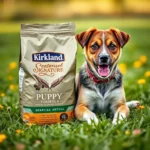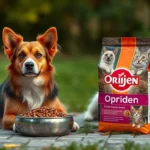
Introduction
Importance of Dog Nutrition
Just like humans, dogs require a balanced diet to thrive. Proper dog nutrition plays a critical role in maintaining a dog’s overall health and well-being. Nutrition affects everything from a dog’s energy levels to its immune system, and deficiencies can lead to a range of health issues. For instance, according to veterinary studies, obesity, diabetes, and nutritional deficiencies are among the top health problems faced by dogs today. Ensuring that your dog receives the right nutrients can significantly reduce the risk of such conditions.
Purpose of the Article
The primary aim of this article is to educate dog owners about the essentials of dog nutrition and the importance of food safety. With the rising number of dog food recalls, it is crucial for pet owners to stay informed. We will highlight the significance of dog food recalls and provide guidance on how to get dog food recall alerts to keep your furry friend safe.
Understanding Dog Nutrition
Nutritional Requirements for Dogs
Understanding your dog’s nutritional needs is fundamental to their health. Dogs require three main macronutrients:
- Proteins: Essential for growth and repair of tissues. Dogs need high-quality protein sources like chicken, beef, lamb, and fish.
- Fats: Provide energy and support cell function. Healthy fats, such as omega-3 and omega-6 fatty acids, are vital for skin and coat health.
- Carbohydrates: Serve as an energy source. While dogs do not have a strict requirement for carbohydrates, they can benefit from digestible carbs like sweet potatoes and brown rice.
In addition to macronutrients, micronutrients such as vitamins and minerals are crucial. They support various bodily functions, including immune response and bone health. Water is also a vital component of a dog’s diet, aiding in digestion and overall bodily functions.
Life Stages and Nutritional Needs
Different life stages necessitate varied nutritional requirements:
- Puppy Nutrition: Puppies experience rapid growth and require a diet rich in proteins, fats, and calories to support their development.
- Adult Dog Nutrition: Adult dogs need a balanced diet to maintain their health and energy levels. Their caloric intake should match their activity level to prevent obesity.
- Senior Dog Nutrition: Senior dogs may require adjustments to their diet, including lower calories and higher fiber to support digestion and maintain a healthy weight.
Choosing the Right Dog Food
Types of Dog Food
When it comes to choosing dog food, various options are available:
- Commercial Dog Food: This includes kibble, canned, and freeze-dried options, which are convenient and nutritionally balanced.
- Homemade Dog Food: Preparing food at home can be beneficial, but it requires careful planning to ensure all nutritional needs are met.
- Raw Diets: Some pet owners opt for raw diets, which can offer health benefits but come with risks, including potential bacterial contamination.
Reading Dog Food Labels
Understanding dog food labels is essential for making informed choices. Here’s what to look for:
- Ingredients List: The first few ingredients should be high-quality protein sources. Avoid foods where the first ingredient is a by-product or low-quality filler.
- Nutritional Adequacy Statements: Look for labels that indicate the food meets the standards set by the Association of American Feed Control Officials (AAFCO).
- Guaranteed Analysis: This section provides information on the nutrient content, including protein, fat, fiber, and moisture levels.
Common Dog Food Ingredients
Beneficial Ingredients
High-quality dog foods contain beneficial ingredients such as:
- High-Quality Protein Sources: Chicken, beef, fish, and eggs are ideal.
- Healthy Fats: Omega-3 and omega-6 fatty acids from sources like fish oil and flaxseed promote a healthy coat and skin.
- Essential Vitamins and Minerals: Ingredients like carrots, spinach, and blueberries provide necessary vitamins and antioxidants.
Ingredients to Avoid
Not all ingredients are beneficial. Here are some to avoid:
- Harmful Additives and Preservatives: Ingredients like BHA, BHT, and ethoxyquin can be harmful over time.
- Common Allergens: Some dogs are allergic to grains, soy, or dairy, so it’s essential to monitor for any adverse reactions.
- By-Products and Low-Quality Fillers: Ingredients such as meat meal or corn can be low in nutritional value.
Dog Food Recalls: Why They Happen
Common Reasons for Recalls
Dog food recalls can occur for various reasons, including:
- Contamination Issues: Pathogens like salmonella or toxins like aflatoxin can lead to recalls.
- Mislabeling: Undeclared allergens can pose serious health risks for allergic dogs.
- Nutritional Imbalances: Some products may not meet the nutritional standards advertised.
Impact of Recalls on Dog Health
When a recall happens, it can have significant consequences on dog health. Dogs consuming recalled food can experience symptoms ranging from mild gastrointestinal upset to severe illness. Notable recalls, such as those involving contaminated kibble, have resulted in serious health crises for affected pets.
How to Get Dog Food Recall Alerts
Official Sources for Alerts
Staying informed about dog food recalls is crucial. The FDA plays a key role in monitoring pet food safety and often issues alerts regarding recalls. You can subscribe to their notifications or check their website regularly for updates.
Community Resources
In addition to official sources, community resources can be incredibly useful:
- Social Media Groups: Many dog owner groups on platforms like Facebook provide timely updates about recalls.
- Mobile Apps: Several apps are designed to track pet food recalls, making it easy for owners to stay informed.
Best Practices for Staying Informed
Here are some best practices to ensure you are always updated:
- Regularly Check for Updates: Make it a habit to check for recalls weekly.
- List of Dog Foods: Keep a list of all the dog foods your pet consumes, including batch numbers.
- Utilizing QR Codes: Some dog food packaging includes QR codes to quickly access information about recalls.
What to Do if Your Dog’s Food is Recalled
Steps to Take Immediately
If your dog’s food is recalled, take the following steps:
- Check the Recall List: Verify if your dog’s food is on the recall list.
- Safe Disposal: Dispose of the recalled food safely to prevent accidental consumption.
Monitoring Your Dog’s Health
After a recall, it’s essential to monitor your dog for any signs of illness, which may include:
- Vomiting
- Diarrhea
- Lethargy
- Change in appetite
If you notice any concerning symptoms, consult your veterinarian immediately.
Transitioning to New Dog Food
If you need to switch your dog’s food due to a recall, follow these guidelines:
- Gradual Transition: Introduce the new food slowly over a week to avoid digestive upset.
- Observe for Reactions: Monitor your dog closely for any adverse reactions to the new food.
Conclusion
The importance of dog nutrition cannot be overstated, and understanding how to choose the right food is essential for your dog’s health. Staying informed about potential risks, such as dog food recalls, is equally important. By learning how to get dog food recall alerts, you can take proactive steps to ensure your furry friend remains healthy and safe.
Being a responsible pet owner means staying informed about both nutrition and food safety. By prioritizing these aspects, you can significantly contribute to your dog’s well-being and happiness.
This comprehensive guide provides valuable insights into dog nutrition, ensuring that pet owners are well-equipped to make informed decisions about their furry companions’ diets.









